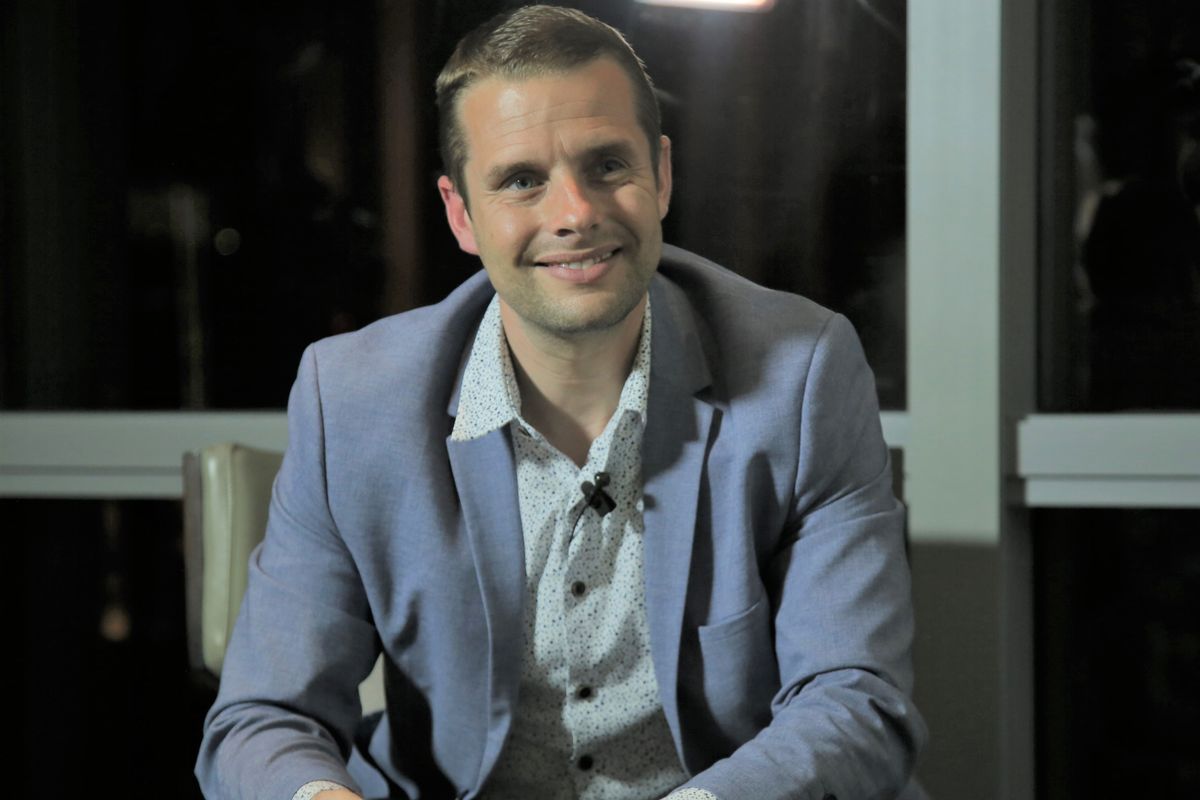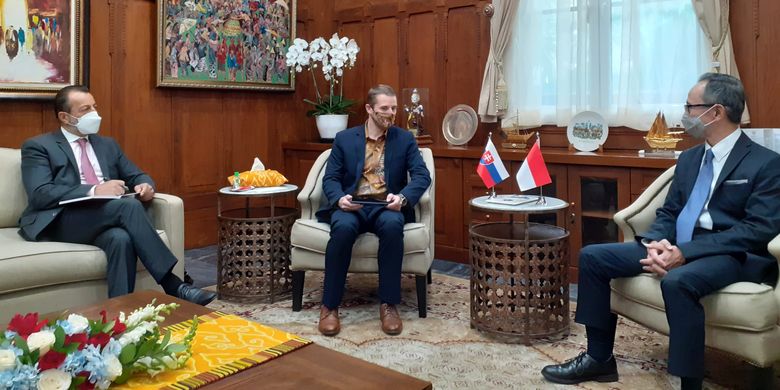G20 Chair Indonesia Should Promote Universal Values of Global Trade, Human Rights

JAKARTA, KOMPAS.com - As the world was slowly recovering from the collapse triggered by the Covid-19 pandemic, the Russia-Ukraine war broke out. It is quite challenging for Indonesia to host G20 this year.
In the mid of uncertainty, Indonesia holds various G20 meetings, online and offline. Some leaders of the world’s major economies even made their statements to exclude Russia from the G20 following its conflict with Ukraine.
State Secretary at the Slovak Foreign and European Affairs Ministry Martin Klus sat down with Kompas Go to share his views on Indonesia’s G20 presidency and other issues on Wednesday, April 20. Klus is on a three-day official visit to Indonesia from April 20-23. Slovakia is a member of the NATO and the European Union (EU), which the latter is part of the G20.
The following are excerpts from Kompas Go’s exclusive interview with the Slovak Deputy Foreign Minister:
Also read: Indonesia Keen on Bolstering Defense, Economic Ties with Slovakia
Question: What is the purpose of your visit and what is your expectation from your meetings here?
Answer: Expectations are always very high and I look forward to the meetings. We have a very good relationship with the Embassy of Indonesia in Bratislava. I have to say that the relationship makes the people-to-people contacts more fruitful as some Indonesian students come to Bratislava and vice versa.
The meetings are expected to cover not only economic cooperation between Slovakia and Indonesia but also the European Union and the Southeast Asian countries. There are rooms to improve and we can help each other bilateral way. The security issue is also an important topic because this is becoming a very concrete problem in our region following the Ukraine-Russia war. Besides, we are very concerned with what is happening in this region, including contested territory or maritime zone issues. Hopefully, we will find ways to help each other, especially with international organizations. And last but not least, this is the right time to speak about the common values because we believe in peace, we believe in democracy, and we believe in multilateralism. It is important for both countries.
Question: Who will you meet in Indonesia?
Answer: I will meet the deputy minister of Foreign Affairs and my colleague in the parliament because I’m also from the parliament. It would be fantastic to visit them to know how parliamentarians follow the situation and their concerns and point of view.
Question: Could you please brief us the state of bilateral relations of the Slovak Republic and Indonesia? Also, what other potential areas of cooperation between the two countries?
Answer: We have some suggestions, for instance, in the security industry, the defense industry, as Slovakia is well-known for its Czechoslovakia defense history. And not only that, we are trying to work hard on cyber security issue as it is significant for our economy, our diplomacy. We want to promote green transition and new technology which will bring our countries to the 21st century.
 Indonesia's Deputy Foreign Minister Mahendra Siregar (right) meets his Slovak counterpart State Secretary at the Foreign and European Affairs Ministry Martin Klus (center) at the Foreign Affairs Ministry building in Jakarta on Thursday, April 21, 2022. Also present was Slovakia's Ambassador to Indonesia Jaroslav Chlebo (left). The Slovak State Secretary at the Foreign and European Affairs Ministry is on his three-day official visit to Indonesia from April 20-23, 2022.
Indonesia's Deputy Foreign Minister Mahendra Siregar (right) meets his Slovak counterpart State Secretary at the Foreign and European Affairs Ministry Martin Klus (center) at the Foreign Affairs Ministry building in Jakarta on Thursday, April 21, 2022. Also present was Slovakia's Ambassador to Indonesia Jaroslav Chlebo (left). The Slovak State Secretary at the Foreign and European Affairs Ministry is on his three-day official visit to Indonesia from April 20-23, 2022.
Question: What’s the update on the plan to sign an MoU on Defense between both countries?
Answer: My colleague at the Ministry of Defense visited Indonesia recently. As far as I know they are on track to finalizing the document. There are also some very concrete proposals for cooperation in the private sector. Hopefully, some joint ventures to promote the Slovakian and Indonesian defense and security industry. As I said, there are companies seeking this market and I’m sure it will be a win-win situation if they promote their business activities in Indonesia. It also includes cyber security, an important field in Slovakia besides the green transition, and some new technologies in the green industry.
Question: Your Excellency, moving on to another topic. As the chair of G20 this year, Indonesia focuses on three main issues: global health architecture, digital and economic transformation, and energy transition. With Slovakia is part of the European Union, how’s the commitment of the bloc to help developing countries in the energy transition and in reducing carbon emissions?
































